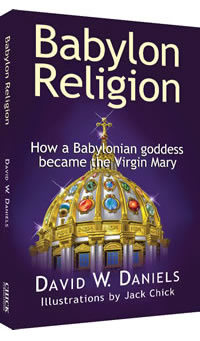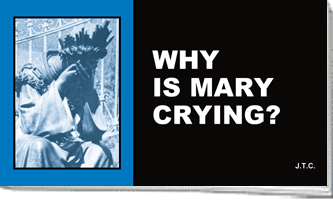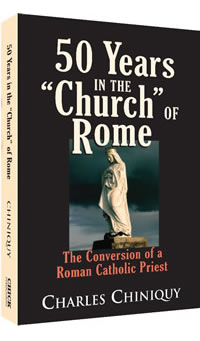Does God Really Have a Mother?
Every January 1, the pope presides at the "Mass for the Feast of Mary the Mother of God" held in the Vatican. But does God really have a mother? Was Mary, the lowly Jewish virgin, a goddess in disguise? Did she actually give birth to God, Himself?
Such questions quickly expose the absurdity of such a title. Even Pope John Paul II admitted in a speech in November, 1997, that the title "Mother of God" was a reflection of paganism. He also acknowledged that it "refers to only the human birth of the Son of God and not to His divine origin."
Then this is a deception of massive proportions. César Vidal, in his book "The Myth of Mary", describes in detail how the Mary of Roman Catholicism is a mythical goddess carefully crafted from thousands of years of pagan idolatry. "It is certain that traces of a mother goddess cult are present in the history of humanity from its most remote times," writes Vidal. Ancient Egypt, Greece and Rome all promoted extensive worship of a mother goddess.
"The mother goddess received different names and external appearances, but, in substance, she was always the same," says Vidal. And they all were strikingly similar to the Roman Catholic Virgin. A prime example is the Greek goddess, Artemis, renamed Diana by the Romans, and worshiped in a great temple in Ephesus. Like the Roman Catholic Mary myth, Diana was the ideal mother, yet was a perpetual virgin. She also had influence in the world of the dead and could send her faithful a "good death."
Her high priest was deprived of a sexual life and her worship involved a money-making industry manufacturing idols and promoting pilgrimages to her shrines. When the Apostle Paul preached in Ephesus that freedom from goddess idol worship could be found through faith in Christ, he caused a riot. But he did not back down, even if it meant being run out of town.
Can we as Bible-believing soul winners do any less than call attention to this Popish deception? Vidal points out that "The rise of the myth of Mary has progressively eclipsed Jesus in Roman Catholic and Orthodox theology in regards to mediation, salvation and lordship... He is no longer the only sinless person. Mary is too. He is no longer the only one who ascended to heaven. So has Mary. He is no longer the only mediator. Mary intercedes as well.
"He is no longer the only Savior. Mary is co-redeemer. He is no longer the only Lord. Mary is the Lady. He is no longer the only King. Mary is the Queen. He is no longer the only one who holds the keys to death and Hades. Mary also has them."
This process of imitation robs Christ of His most important characteristics and fixes them in a mythical goddess who is entirely different than the biblical Mary. Over a billion precious souls parrot the vain repetition: "Holy Mary, mother of God, Pray for us sinners..."
Paul did not hesitate to risk his life to tell them the gospel truth. Can we do any less?
- See more articles on related topics:
- Catholicism
- Virgin Mary
Other Articles from May/June 2000:
- He Wanted a Book About the Devil
- You Never Know What God Will Do With His Word
- Four Little Words
- A Message From Jack Chick - May 2000
- Chick Mail Bag May 2000
- Parable of the Fishless Fishermen
- American Bible Society No Longer Pope's 'Pest'
- Prison Ministry Letters May/June 2000
- Dr. Rivera's 15-Year-Old Claims Verified by Current Events
- Why Do We Need "Thee" and "Thou"?
- Tract Passing Tips - May 2000
More on Catholicism:
Products of Interest:
-

Babylon Religion
224 pages
Learn how a Babylonian goddess became the Virgin Mary. An easy-to-read history of Catholicism's Babylonian origin. 
Why Is Mary Crying?
Devotion to Mary doesn't please her. It breaks her heart.-

50 Years in the Church of Rome
368 pages
This classic work shows how this priest began to question Catholic teachings until he became saved, and led his entire parish to salvation. -

Understanding Roman Catholicism
224 pages
37 Catholic doctrines from the current Catechism are compared with the Scriptures. They're not Christian!



